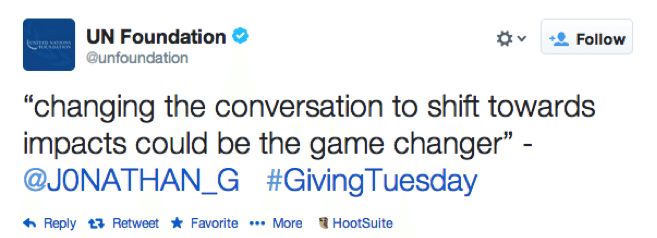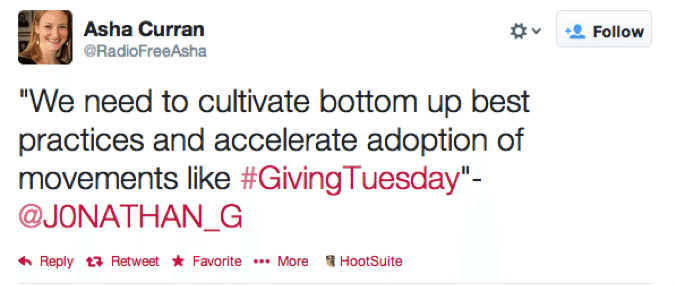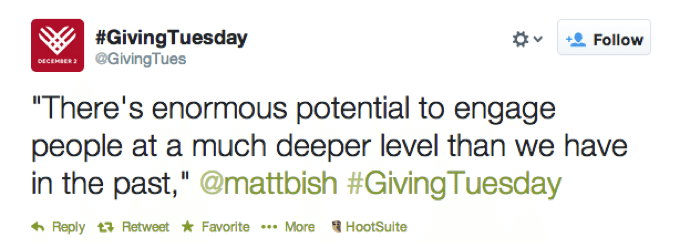Two years ago this week, the Case Foundation launched its Finding Fearless challenge to identify changemakers across the United States that embodied our Be Fearless principles. Finding Fearless provided a tangible and real world chance to witness risk taking, experimentation and big bets embodied by local nonprofit leaders. Two years later, we would like to share with you where these leaders are and what they have accomplished.
In September of 2012, the Case Foundation partnered with Microsoft, REI and the Goldhirsh Foundation to find and fund fearless changemakers. We knew that there were leaders on the ground who were employing experimental approaches to tackle the world’s most challenging problems. Over the course of the campaign, we heard from a diverse group of large and small organizations and individuals that had taken a fearless, innovative approach to their charitable work. The twenty Finding Fearless winners were focused on a variety of issues, ranging from food scarcity to recidivism to education.
We are incredibly proud of their progress and achievements and are thrilled to see several of them gaining broader recognition. Swipes for the Homeless was recognized by President Obama as a “national leader in social innovation” and a Champion of Change for boldly advocating across university campuses to give students the opportunity to donate their unused meal points to food pantries serving homeless populations. Additionally, Madhura Bhat, who co-founded Health for America, an organization that runs a competitive fellowship program to teach next generation leaders to deploy entrepreneurial thinking in addressing health issues in America, was awarded the 2013 SXSW Dewey Winburne Community Service award. Marquis Cabrera, founder and CEO of Foster Skills, has been honored as the Massachusetts Innovator of the Year (Boston Globe) and Massachusetts Young Nonprofit Professional of the Year (MNN).
Another fearless young philanthropist has received special recognition for her efforts in Wisconsin. Jordyn Schara, founded WI P2D2, a prescription pill and drug collection program whose mission is to lessen the time and financial burden on police departments, related to the proper disposal of confiscated pills and drugs. The program provides police departments with 24/7 secure drop-box locations where the pills can be stored in between the Drug Enforcement Agency’s bi-annual collection events, when the pills can be safely destroyed. Jordyn was recently chosen by Teen Vogue to attend the Clinton Global Initiative University at Arizona State University.
We continue to be impressed and inspired by these twenty community leaders and wanted to take this opportunity to share some of their successes and stories from the field.
Reach Beyond your Bubble
We were excited by the groups our national sweep discovered that were being creative in their project designs and bold in their partnership decisions. For example, ArtSpring, a Florida organization that provides incarcerated women with positive artistic outlets for personal expression, has been successfully preparing participants for re-introduction to life outside of the corrections system. ArtSpring has been looking beyond their smaller prison community and have built an effective, mutually beneficial partnership with Florida Atlantic University. Through this creative partnership, students enrolled in the Rhetoric of Incarceration course and are able to study the unique perspectives on freedom and individual rights within incarcerated women’s writing. According to Leslie Neal and Nicole Bible of ArtSpring, the learning between inmates and students has pushed participants “intellectually and academically, and allowed the [inmates] to feel heard, respected and valued.” Art Spring has a phenomenal track record of nearly 0% recidivism among participant women.
Let Urgency Conquer Fear
The Campaign for Southern Equality, a nonprofit dedicated to promoting full LGBT equality with a focus in the South, is letting urgency conquer fear through their WE DO Campaign. Throughout Southern states where gay marriage is not legally recognized, the campaign made a big splash and earned greater national attention for their cause. Through peaceful protest, a cohort of gay and lesbian couples, and their supporters, went on an emotional journey from county courthouse to county courthouse where they were repeatedly denied access to marriage licenses. While the laws remain unchanged in their home states, the participants drew huge media attention and pushed conversation around a difficult and divisive subject to the forefront of public debate in their home states. They successfully drew public attention to a legal barrier this community is fighting to change immediately.
Make Big Bets
The New American Leaders Project (NALP) is working in African, Arab, Asian, Caribbean and Latino communities to recruit and train both new and experienced public servants as they take the next steps in civic participation. NALP uses public outreach, training programs and large convenings to generate a fraternal atmosphere of support for their diverse cohort of values based community leaders. They continue to make big bets on their members through the “Ready to Lead” program that provides community leaders in American immigrant populations with the tools and training to effectively campaign for local, state and national office. NALP is determined to empower leaders in minority communities through civic participation, in an effort to create a more inclusive government, better prepared to advocate for the increasingly diverse American population, generating a more robust democracy. They have successfully trained more than 250 leaders, thirteen of whom have already been elected to office.
Make Failure Matter
A natural component of taking risks is failure. And each of the winners faced challenges of varying severity. A few of the winners shared those obstacles with our team, and their means for learning from and overcoming them. Clark Fork Coalition discovered that without community cooperation, the most well-intentioned plans could be met with distrust and opposition. The Coalition encourages sustainable land and water management in Missoula, MT. They manage a ranch for use as an educational tool and as an example of successful land stewardship. They found, however, that to communicate their goals effectively to other landowners and ranchers, they would first need to build a foundation of trust within the community. The Coalition was able to develop a strategy of community integration through outreach projects as simple as hosting barbecues. This allowed them to build relationships within the ranching community, with the hope of facilitating future land management interventions in the future.
Experiment Early and Often
Another obstacle for small nonprofits is technological limitations. For a number of the winners, digital technology as a medium for media outreach, user tracking and information sharing and gathering, posed some significant challenges. For organizations with limited access to necessary equipment or with volunteers who may not have the proper skills to deliver needed tech solutions, it may be necessary to scale back operations, in the short term.
However, one of the winners, So They Can Know (STCK), faced a technological obstacle and was neither discouraged nor did they back down from their mission. They provide an online platform that allows individuals who have tested positive with a sexually transmitted infection to anonymously inform past partners of their potential exposure and direct them to testing facilities. They have successfully launched their online application through which visitors can send anonymous emails to partners. The STCK team understands that most young people communicate by text message, not email, so to effectively reach more potentially at risk individuals they will need to get the anonymous text messaging option up and running through their website. STCK continues to work on increasing their employees’ tech knowledge and have turned their focus on capacity building to bring in the proper skills to realize the potential of their bold experimentation.
The Case Foundation continues to be impressed and inspired by the organizations that participated in the Finding Fearless grant challenge. For everyone that has participated in the campaign, we are happy to provide you with this update on where our Fearless winners are now. We may not have been able to highlight the achievements, awards and challenges of every winning organization, however we hope you will take time to explore each of these fascinating and fearless organizations to see their impact and what they have learned!
- AmpleHarvest.org
- Art Spring
- Breaking Heels
- Campaign for Southern Equality
- Chicago Alliance Against Sexual Exploitation
- City Hall Fellows
- Clark Fork Coalition
- DC Social Innovation Project
- Foster Skills
- Health for America
- New American Leaders Project
- Swipes for the Homeless
- So They Can Know
- Peak Potential Climbing
- Portland Junior Scientists
- WI Pill & Drug Disposal
- Youth Ambassadors
- Youth L.E.A.D.
- Youth Music Exchange
- Zero Percent


